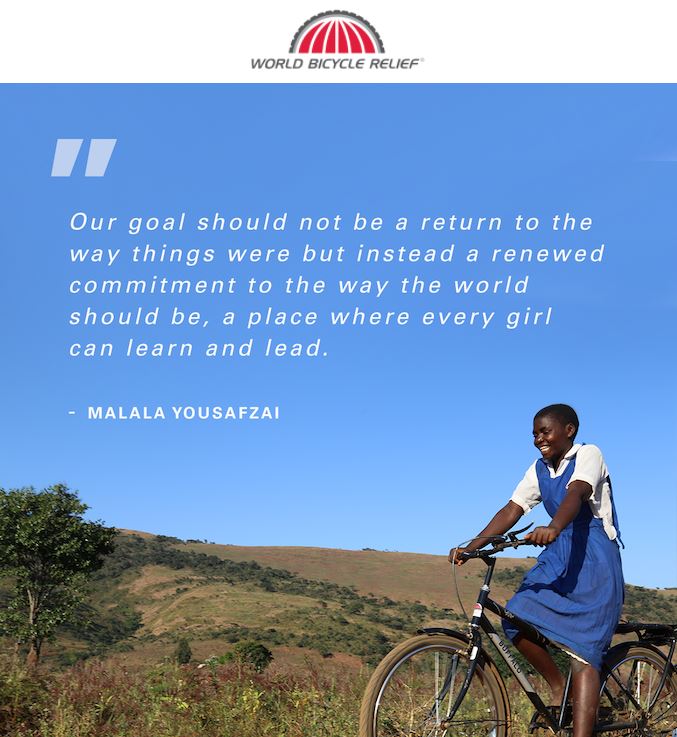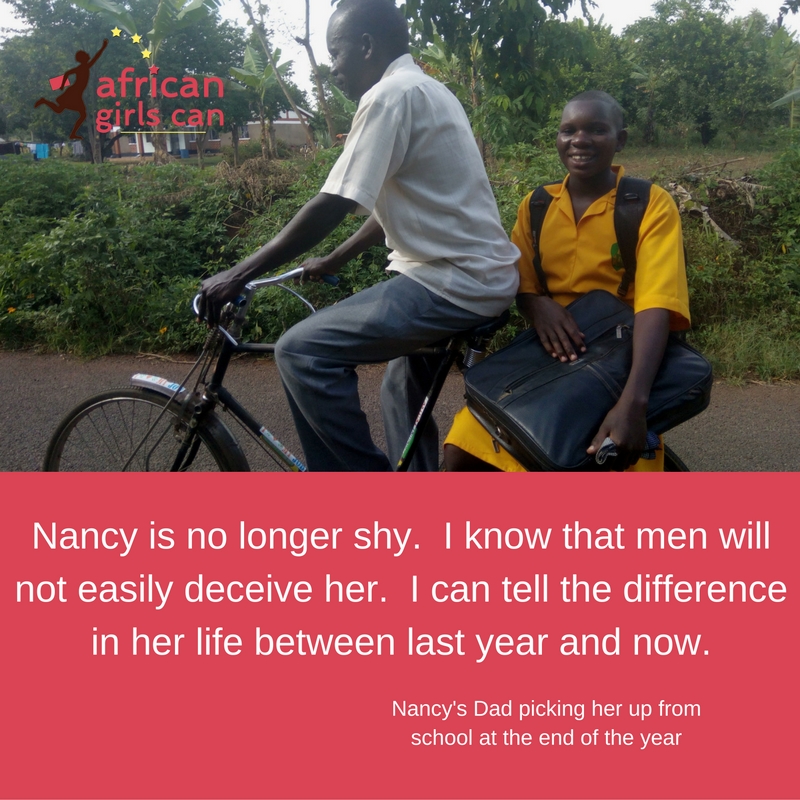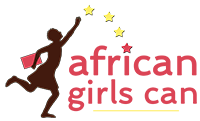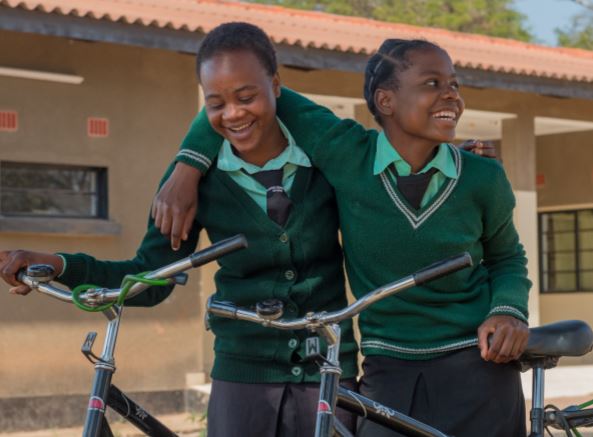On International Women’s Day, March 8, 2021, African Girls Can listened to a webinar on “Eliminating Barriers to Girls Education” hosted by World Bicycle Relief (WBR). Working in 15 countries in Africa, Southeast Asia, and South America, WBR’s “bicycles give rural communities around the world access to education, healthcare, and jobs that were once out of reach.”
Meet the Speakers:
- Damaris Parsitan, Let Masaii Girls Learn, Kenya
- Wendy Serrino, UNICEF, Water for Guinea
- Karina Garcia, Monitoring & Evaluation, Colombia office of World Bicycle Relief
The issues girls are facing around the world due to COVID-19 are severe. Children in the developing world already face many unique challenges to access education and COVID-19 exacerbates these barriers. An estimated 5 million girls are now at risk of not going back to school. This has a ripple effect on all aspects of life and perpetuates poverty. Dropout rates have increased due to lack of social support services and nutrition, increased domestic violence, and economic pressures. Online learning is an example of the inequity between developed and low-income countries. IF there is access to a smart phone in the family it will go to the boys. Read more about the gender digital divide.

Much More than a Bicycle
70% of World Bicycle Relief’s bicycles go to girls. A study in Zambia showed that by giving a bicycle to a girl, it becomes a resource for the entire family. After a girl uses it to go back and forth to school, the family uses it for all types of activities (bringing surplus vegetables to market, for instance).
According to WBR impact data, travel time to school decreases by 33%, absenteeism drops by 28%, and punctuality jumps 66%.
Private motorcycles (i.e. boda bodas in Uganda) are a double edged sword. Girls ride to school on them, but the drivers also notoriously prey on young girls. Her own bicycle empowers a girl to go where she wants to go, safely.
Watch World Bicycle Relief’s video, “A Way Forward,” which demonstrates these dangers, and this freedom.
 What about conservative societies who don’t believe that girls should be zipping around alone on bicycles? WBR thinks it is important to be respectful of culture while promoting gender equity, so works with local and traditional governments and leaders to do community sensitization.
What about conservative societies who don’t believe that girls should be zipping around alone on bicycles? WBR thinks it is important to be respectful of culture while promoting gender equity, so works with local and traditional governments and leaders to do community sensitization.
What happens when a bicycle breaks down? WBR provides training on bicycle maintenance so the program is sustainable. They invite women to be part of their field mechanic team in every country.
During the pandemic, WBR has shifted to give bicycles to front line health workers.
Read Global Citizen’s article about World Bicycle Relief’s work keeping girls in school in Africa.
Another organization, Verlafrica, based in Switzerland, also distributes bicycles. Since 1993, they have been collecting unwanted bicycles, repairing them and exporting them to partner organizations in 7 countries in Africa.
The intervention of a bicycle + clean water = the gift of TIME. Time to learn, to play, and to be kids.
Water Means Freedom Too
Girls spend an estimated 200 million hours a day gathering water. This is time away from school doing this manual labor. Girls also deserve a bathroom of their own at school. Clean water and safe toilets are a fundamental right, furthering gender equity and health.
36% of people living in rural Guinea (4 million) don’t have safe water in their homes, schools, or even health clinics. There is grassroots influence for getting a local water pump. If people see how useful the pump in the next village is, they want one too. In the case of Guinea, the government saw how the pumps benefit its citizens and transform lives and provided loans to expand the program.
UNICEF has a contract to distribute the COVID vaccine in 90 countries. It vaccinates over 50% of the world’s children already. They have experience doing this by boat, car, bike, and on foot.
Photos are copyright World Bicycle Relief.



